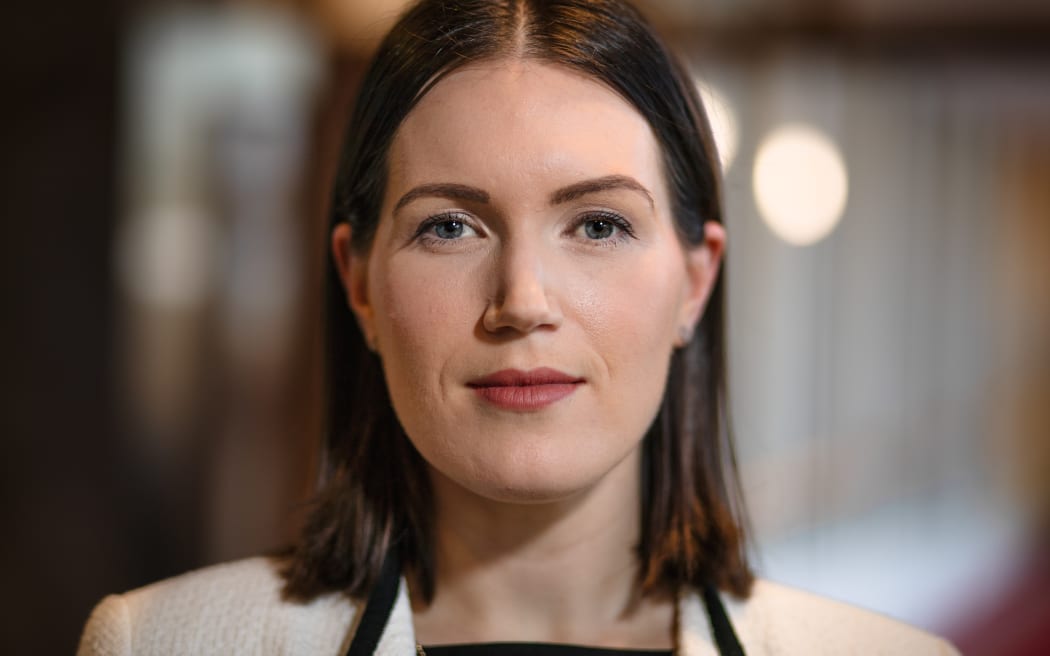When ACT’s Brooke van Velden won the Auckland seat of Tāmaki at the election, it was a triumph of shrewd campaigning. But it was also a failure for Christian conservatism in mainstream politics.
Lyn Kempthorne plays in a business women’s golf group. People of all ages are involved, she says.
Around the golf course at Remuera they talk about all sorts.
Earlier this year, the election was a big talking point. Specifically, the race for the local Tāmaki seat between incumbent National MP Simon O’Connor and ACT Party deputy leader Brooke van Velden.
O’Connor enjoyed handsome margins in four successive elections. He had an 8000-vote majority in the 2020 election where National Party colleagues in even the safest seats were run much closer, or even defeated.
But at this election, van Velden arrived as a serious challenger. And O’Connor was the subject of some negative headlines.
In June last year, his five word Facebook post in response to the US Supreme Court ruling curtailing access to abortion became a major story.
"Today is a good day,” O’Connor said, on a background of love hearts.
O’Connor was chided by National Party leader Christopher Luxon – who is also personally opposed to abortion – and told to take the post down.
O’Connor’s position wasn’t new – he had spoken vehemently against the Abortion Legislation Bill, which took abortion out of the Crimes Act prior to his re-election in 2020.
But the Roe v Wade incident captured national headlines which followed O’Connor around throughout his 2023 campaign for a fifth term as the local MP.
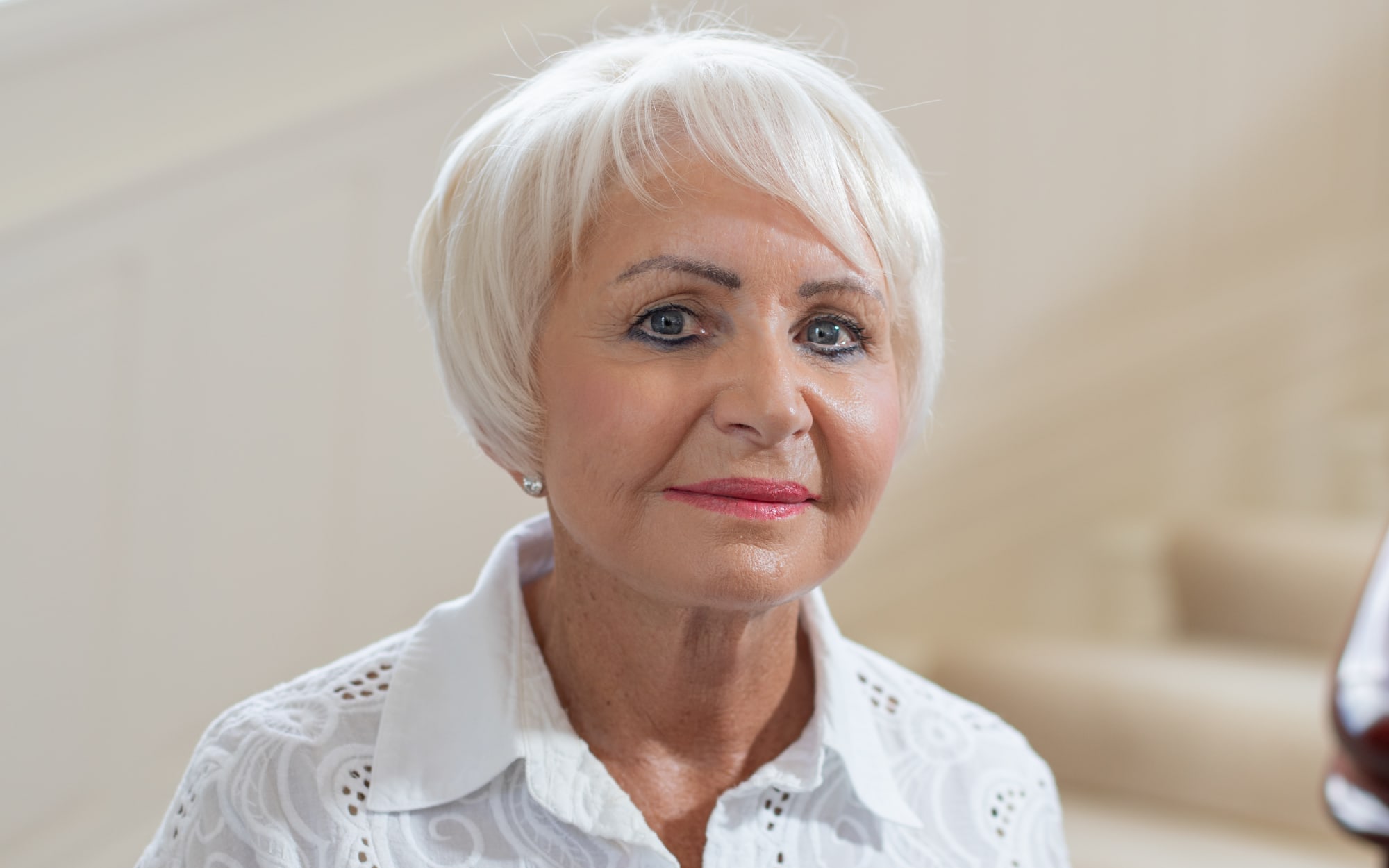
Lyn Kempthorne Photo: RNZ / Cole Eastham-Farrelly
It was how he was defined by Lyn Kempthorne and her friends on the golf course.
“Well, initially, it wasn't about Brooke. It was about him [O’Connor] tweeting about Roe versus Wade,” Kempthorne says.
“And, you know, women of all ages suddenly went, uh oh, we don't like this. And then we started to look into him and found that we have a religious right winger here, you know, who espouses Trump, he espouses, you know, homophobia and then suddenly came along Brooke.”
O’Connor is not known to have endorsed the former US President Donald Trump, a person widely disliked in New Zealand. He voted against same-sex marriage and has been accused of homophobia at different times for things he has said but firmly rejected the charge each time.
He has never shied away from his Christian faith though, actively and consistently applying it to a series of conscience votes in Parliament. It was the way he brandished it on the issue of abortion that seems to have led voters like Kempthorne to conclude it was a problem.
“I think a woman has the right to decide what she does, it shouldn't be decided by any men,” Kempthorne says.
“And I was quite surprised because you know [at] business women's golf there's a range of ages. And it was amazing how, across the board, the woman were opposed to that, even the religious ones, even the ones that still go to church.”
Van Velden and the ACT Party recognised O’Connor’s vulnerability - and her suitability as a candidate to capitalise upon it.
Elected to Parliament in 2020 on the ACT Party list, van Velden became a canny foil to leader David Seymour. A quieter presence in and around Parliament, she nonetheless was clear about her political stripes. Even in her maiden speech – when she said she stood “firmly in favour of bodily autonomy” - van Velden was fashioning the sort of profile that would contrast sharply with O’Connor.

Brooke van Velden Photo: RNZ / Calvin Samuel
Van Velden is also credited as the architect of the End of Life Choice Bill, which Seymour successfully got to a referendum in 2020 and then into effect in 2021. O’Connor voted and spoke strongly against it.
Liam Hehir is a National Party member, political commentator, and friend of Simon O’Connor.
He says the “dynamic” of O’Connor’s Christian conservatism lined up sharply against van Velden’s classical liberalism was decisive in the race.
“If it had just been Brooke van Velden running that electorate to be another strong voice for Tāmaki she wouldn't have had a chance, but they leveraged the issue so well,” Hehir says.
He zeroes in on “the abortion issue”.
“I make no apologies for being a pro-life Catholic myself, but we don't live in a pro-life country,” he says.
“We're a pro-choice country … And what we saw was that even within a seat like Tāmaki, which is actually one of the more religious seats in the country, that pro-life position is enough of an unpopular minority that when it's made an election issue, social conservatives come off second best.”
While Hehir says ACT and van Velden campaigned on the issue, he can’t point to anything van Velden specifically said or did.
But he is not the only one. Voters like Kempthorne and others who watched the campaign closely give the impression that van Velden just had to be present and let everyone else talk about how she was the antidote to O’Connor on the issues that made him unpopular.
Susan Fountaine is an associate professor in the school of communication, journalism and marketing at Massey University. She has done research into gender in New Zealand politics.
“I didn't get any sense from Brooke that she was pushing a particular kind of gender driven policy,” Fountaine says.
“She didn't take multiple opportunities to talk about how, you know, its policies might benefit women or whatever. So I feel like it probably was leaning into a bit of a cultural moment, taking advantage of that, knowing that the optics of that were not going to play out negatively for the ACT Party.”
Van Velden happily embraced the ACT Party’s modern colour, frequently sporting a pink blazer on the campaign trail. It led her neatly into the cultural zeitgeist when an ACT Party billboard featuring Seymour was transformed into Ken – as in Barbie and Ken – from the wildly popular movie.
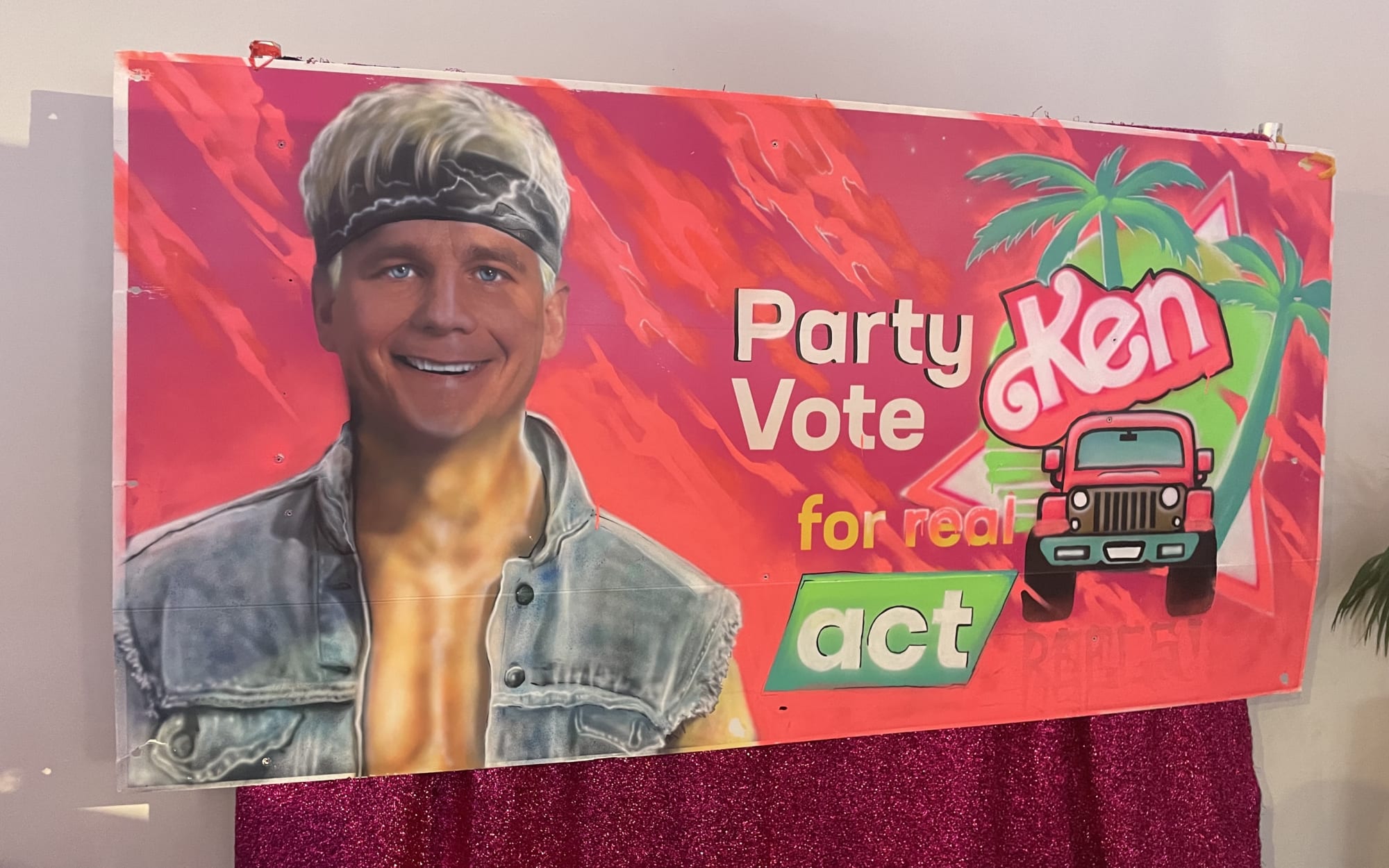
Photo: RNZ / Bonnie Harrison
Van Velden was not gauche enough to cast herself Barbie, but neither did she shy away from the fun of it. In a ’20 questions’ video posted on social media by ACT, she was asked one of the pop culture questions of the moment: Barbie or Oppenheimer?
“Honestly, if Oppenheimer had a dance sequence, maybe, but definitely Barbie,” she answered.
According to Fountaine, the “pink component” softened ACT’s image at a national level.
“The typical ACT voter is male, of a certain age, and potentially probably from a rural area. So having Brooke as the deputy leader offers them a way into a different group of voters, you know, a more, perhaps a younger, urban, possibly female voter group.”
Van Velden had one more ace up her sleeve, and there was nothing subtle about it.
On October 4, with advance voting underway, van Velden posted a picture to her Instagram account of herself having a cup of tea with "my friend" Paula Bennett, the former National Party deputy leader.
If the photo itself wasn’t enough, the tea cups – an obvious nod to the staged meetings of National and ACT leaders at prior elections – made it explicit. Bennett, a prolific fundraiser for National, was clearly giving her personal endorsement to van Velden for the Tāmaki seat.
The party vote for National in Tāmaki was, as usual, vast. For a National Party figure of Bennett’s stature to swing behind van Velden, therefore, was very significant. For Hehir, it was “pretty scandalous”.
“Nats don’t do that to each other,” he says.
“Paula Bennett's the biggest fundraiser for the party and she's got good strong name recognition. … That creates a permission structure for Nat voters to say: ‘Oh, right. Well, you know, maybe it's OK for me to break faith and vote for BvV this time around.”
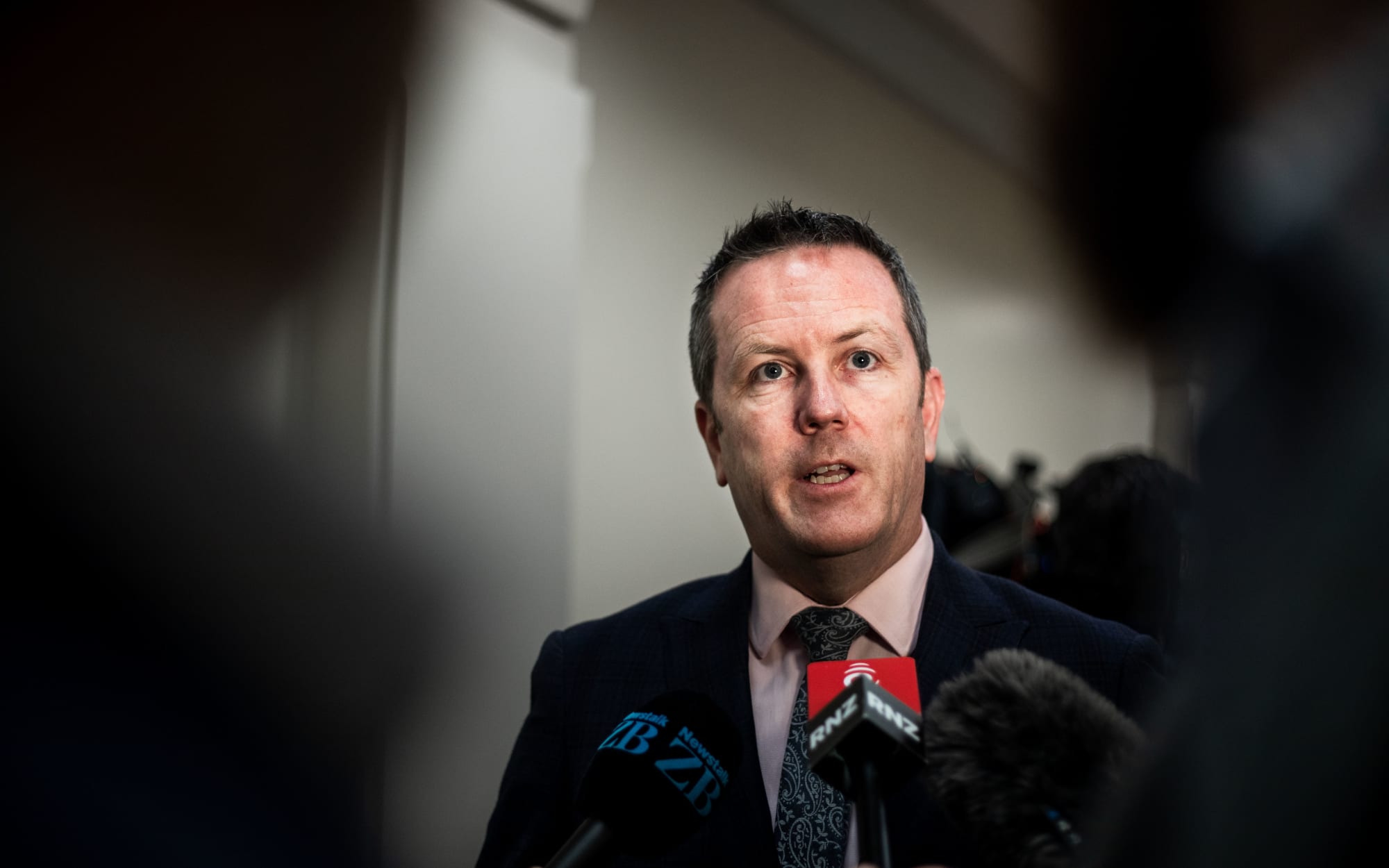
Simon O'Connor has disappeared from public view completely since his defeat on election night Photo: RNZ / Samuel Rillstone
What now for Christian conservatism in National?
O’Connor has disappeared from public view completely since election night. He did not respond to multiple requests to be interviewed for this story.
It’s easy to imagine he felt betrayed by Bennett’s intervention.
Over several years, O’Connor was one of a few Christian conservatives in National’s caucus who appeared to be out of favour with the leadership. They were supposed to be proof the National Party is a “broad church” but were derisively branded “the Taliban” because of their conservative views.
Alfred Ngaro was one of them. Like O’Connor, he was elected in 2011 and made it into Cabinet in late 2016. He left the party after National’s heavy defeat in 2020 and is now the leader of a Christian conservative party called NewZeal.
Ngaro claims National gradually came to favour a more liberal sensibility while he was in Parliament.
“What I started noticing that over time, even sometimes in my own caucus, people who had a different view really started lobbying me and trying to get me to shift,” Ngaro says.
He cites the debates over the End of Life Choice Bill and abortion reform as decisive.
“I began to realise that now it was the conservatives versus what they would call the progressives, and I felt like your conservative values are old, traditional, they're irrelevant, we're progressive.
“And progressives are more relevant, they're more liberal, and the way of the future, and that's the way that it seemed to be positioned, and not just in the caucus, but also in the House of Parliament.”
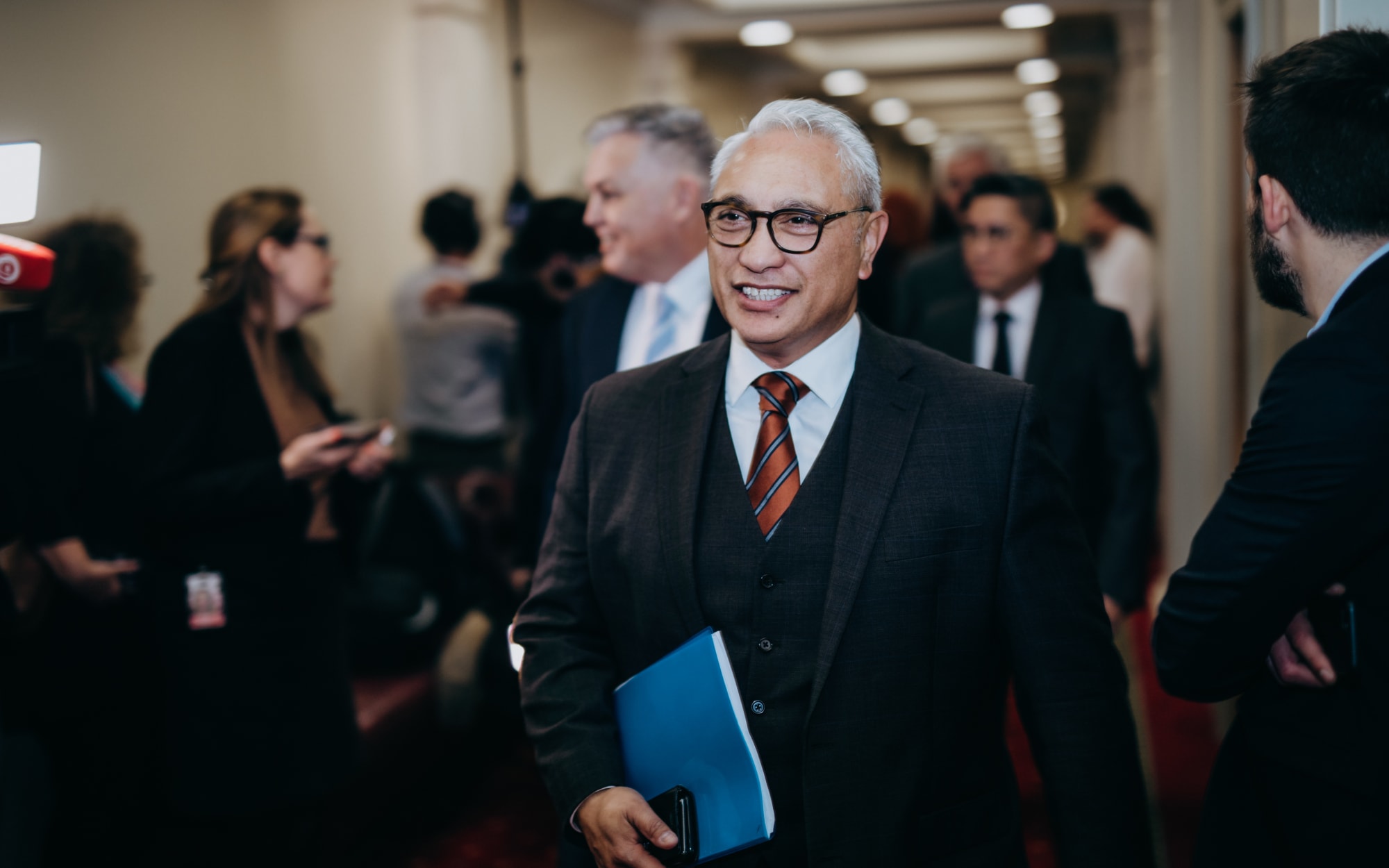
Alfred Ngaro Photo: RNZ /Dom Thomas
The problem with this idea, though, is that National has had a succession of leaders who are themselves people of faith. Bill English, a giant of the party who followed John Key as leader, is proudly Catholic. His successor, Simon Bridges, grew up in a Christian household and has spoken of the importance of God in his life. The current leader, and now Prime Minister, Christopher Luxon is Christian.
But whereas O’Connor applied his Christianity to his politics, Luxon in particular has actively eschewed it.
"My faith is not a political agenda,” Luxon told RNZ’s Guyon Espiner last year.
“You shouldn't vote for me because of my faith, and you shouldn't reject me because of my faith."
Luxon, a student of politics, appears to have recognised the political risk of being framed as an “evangelical Christian” in mainstream New Zealand politics.
As a backbench MP, Luxon voted against the first reading of a bill that would keep pro-life protestors at least 150 metres away from abortion facilities. After he became leader, he voted for it, citing a change that made it explicit protestors would have to be causing emotional distress in order to be breaking the law.
He has since stated several times that there will be no change to abortion law under his government and bristled at being labelled an evangelical.
"It irritates me," he said.
"It becomes a shorthand for a political hit job and a bit of a beat up."
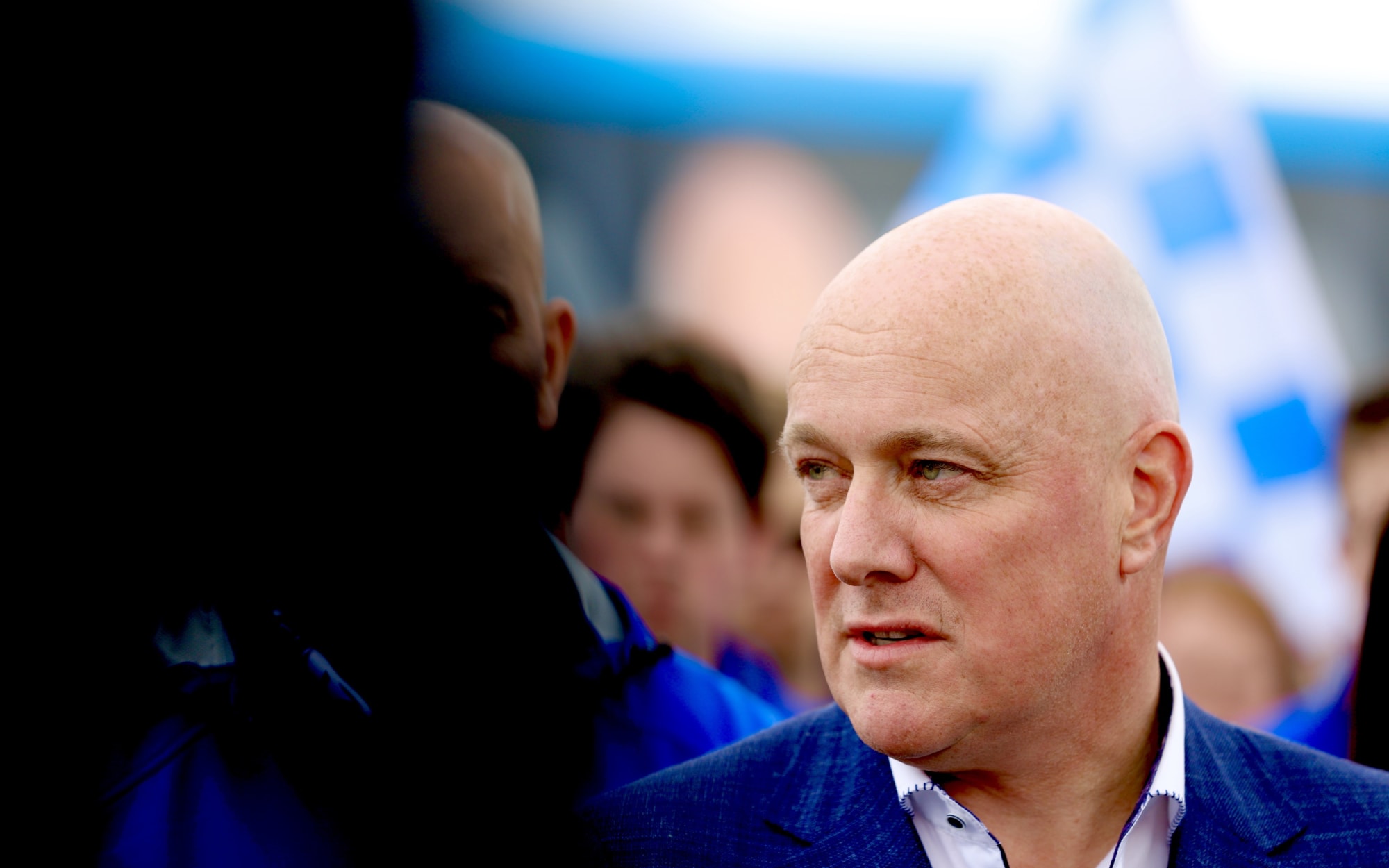
Christopher Luxon Photo: RNZ / Marika Khabazi
Hehir says this simply reflects Luxon’s ambition.
“The thing he cares most about is being Prime Minister, and winning. Being a fire breathing social conservative is quite dangerous to that ambition.”
There are other ambitious characters in National’s ranks who have taken the same approach – newly appointed ministers Simeon Brown and Chris Penk, for example.
“I think that those two gentlemen understand in a way that Simon perhaps didn't or didn't care about, about the need for moderation, and how you talk about those things,” Hehir says.
"Simeon and Chris Penk are really good examples. Everyone knows they're conservative. But you know, you're struggling to find them saying divisive things on those particular issues. They'll say divisive things on any other number of things, but they've got enough sort of instinct for self-preservation to know that actually, in this country, being a right-wing culture warrior there's a limited appetite for that amongst the electorate.”
With this approach firmly in the ascendency under Luxon it seems unlikely there would be a path back for O’Connor, assuming he even wanted it. He did see off a challenge for the party’s nomination to stand in Tāmaki in 2023 but the margin of defeat to van Velden might make it hard for local delegates to back him again.
That leaves the option of defecting to a micro party like Ngaro’s NewZeal.
“I've spoken to Simon … he has served their community well, and it is tough ... but you know, that's, that's what happens when you step into public office, right?” Ngaro says.
Could O'Connor join his party?
“I don't know. We haven't talked about that, honestly. But, you know, we'd be happy to have him.”
In Tāmaki, at least for now, those who backed van Velden into the job are happy to have a Cabinet minister for their MP. She had no prior connection with the place – having run as a candidate in two different electorates before Tāmaki – but she does now.
Kempthorne says she even won over some “stick in the mud” older men at the golf club.
"She [van Velden] went along, and I said to one of the old men afterwards: ‘How did it go?’
“'Ah yes, she's Prime Minister material’ [they said]. It was quite amusing, really. Because, you know, as women we were all really pleased ... I think it helps that she's a nice-looking young woman, even though it's not meant to, but I think it does.
“She always had a beautiful pink coat on and yeah, she's very engaging.”
